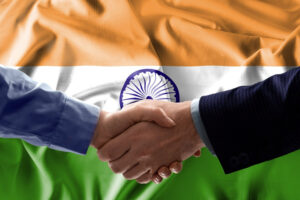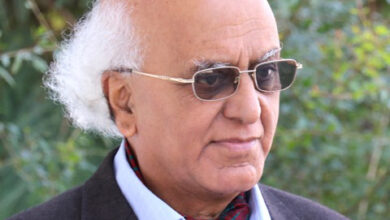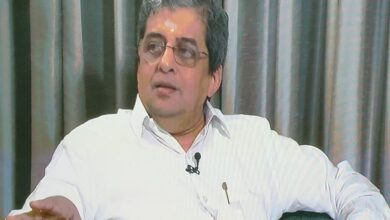Whither India’s foreign policy?

By Smruti S Pattanaik
The Indian election results have been announced, and the National Democratic Alliance (NDA) emerged as the winner despite the resurgence of the opposition conglomerate INDIA. It is expected that India’s foreign policy towards its neighbours will continue with its ‘neighbourhood first’ and ‘first responder’ policies. In the past 10 years of the Modi government, the focus has largely remained on infrastructure and connectivity with the neighbourhood to strengthen the region’s economic integration.
Moreover, India’s foreign policy continues from the previous Congress-led United Progressive Alliance government, as there is a basic underlying consensus among the political parties on the contours of India’s neighbourhood policy. The primacy of this policy has been based on stability in the neighbourhood, which has a salutary effect on India’s stability and economic development in the border areas. This cannot be separated from economic development in neighbouring countries and the establishment of broader partnerships in a geo-economic sense.
Manifestos and foreign policy
Manifestos provide a glimpse into political parties’ thinking on foreign policy. However, policy decisions are made considering larger geopolitical developments, India’s security imperatives and geo-economic impulses in the context of other significant global players and their regional interests. In the recent election, the manifestos of all major political parties focused on domestic issues.

Unlike in the past, the Bharatiya Janata Party’s (BJP) manifesto focused on ‘Bharat first’ foreign policy. Leading the global south has always been a priority of India’s foreign policy, evident in the Non-alignment policy, South-South cooperation, Group of 77 and Afro-Asian conference, where India played a leading role. Interestingly, the Modi government prioritised the global south when it took the G20 Presidency in 2023. Notably, the government’s policy on Citizenship Amendment Act (CAA) is mentioned in the section on surakshit bharat.
Humanitarian assistance and disaster relief are other areas that India has focused on in the past as its outreach has expanded through maritime collaboration and strengthening vision through the Security and Growth for All in the Region (SAGAR) policy. As India’s emphasis on infrastructure grows, the India-Middle East-Economic Corridor—the Modi government’s initiative—will get a boost along with the International North-South Transport Corridor (INSTC). Additionally, the development of Chabahar Port will provide an edge to India’s economic outreach.
Developing strategic partnerships for mineral security would be a new initiative of the incoming NDA government. Digital public infrastructure has always been the Modi government’s priority. Perhaps considering the voters from the southern states of India, the BJP spoke of establishing Thiruvalluvar cultural centres worldwide in its manifesto. It is, however, unclear where this centre would be in addition to the Indian Cultural centres that India has established across the world.
Energy security, green energy and border infrastructure would remain important, and this is where an attempt would be made to connect with neighbours. The master plan for Purvodaya integrated infrastructure development for the Eastern states of India would boost infrastructure development in the Eastern part of South Asia, as BBIN and BIMSTEC nations are contiguous to this region. Both the BJP and Indian National Congress (INC) are committed to opposing terrorism in all its forms and taking steps to counter state-sponsored terrorism.
There has been a larger political consensus on this issue in the past. Dialogue with Pakistan will not be possible in the near future unless Islamabad commits to taking steps to ensure that its territory is not used for terrorism against India. One has seen the military government of Musharraf pledge in the past. Moreover, India’s stand on removing Article 370 is non-negotiable, and there is a broad political consensus.
The Indian National Congress has emphasised free trade and a rule-based international order. It is important to note that the INC and its INDIA partner would ‘uphold continuity in India’s foreign policy’ as promised in its manifesto. Therefore, there will not be any divergence in India’s foreign policy in general and in its neighbourhood in particular. The INC’s manifesto also emphasises the global south and multilateral institutions.
Neighbourhood policy
The BJP will continue its policies towards India’s neighbours, prioritising robust economic partnership through trade, infrastructure and energy connectivity, which will spur growth. Its manifesto touched on the government’s broader foreign policy agenda, with an emphasis on ‘neighbourhood first’.
The INC, however, has made special efforts to outline its approach towards India’s neighbourhood. It is important to note that the foreign policy approach of the opposition is crucial because they are members of the Parliamentary Committee on External Affairs, where issues of foreign policy are discussed threadbare in which the opposition participates.
The INC has devoted a section to India’s neighbourhood, for example, prioritising India’s special relationship with Nepal and Bhutan to ensure a mutually beneficial relationship. India’s relationship with Nepal has been unstable over the territorial dispute, and both are currently discussing ways to resolve the issue. Both INC and BJP emphasise negotiation to resolve problems between India and Nepal. They are enhancing the economic and cultural relationship with Bangladesh, which is already on track, especially the economic relationship with Bangladesh where bilateral trade is touching almost $18 billion. It needs to be underlined that during Manmohan Singh’s government, India had extended zero tariffs on 61 products—out of which 48 products were related to Bangladesh’s garment industries, which is a major contributor to the nation’s GDP.
The INC also speaks of enhancing the political and economic relationship with Sri Lanka. On both economic and political counts, ECTA is still under negotiation, even though the Tamil ethnic issue remains a problem. India has emphasised addressing the grievances of Tamils in Sri Lanka, which also has implications for India as it continues to host Tamil refugees who fled Sri Lanka due to the ethnic conflict there. Sri Lanka is poised for the presidential election, followed by the parliamentary election this year. These issues would remain hotly debated in Sri Lanka’s domestic politics. In this context, regional parties in Tamil Nadu would be essential in shaping India’s policy towards Sri Lanka.
The INC has promised to repair the relationship with the Maldives. However, the Modi government has taken steps to engage with the Muizzu government in the Maldives to ensure that the relationship does not suffer from the nationalist electoral rhetoric that was a part of Muizzu’s election campaign. Though INC is candid about human rights violations in Myanmar, it is unlikely that India would adopt any stringent measures against Myanmar’s military regime especially when India’s vital security interests are at stake. It is equally concerned about the cross-border implications of the conflict in Myanmar on its population in the ethnically volatile North East region.
Wither foreign policy
Both the incumbent BJP’s manifesto and that of the INC, which would be in opposition, suggest that there will be no drastic changes in foreign policy. The manifestos are not divergent, and the sum and substance remain the same. Both parties have similar views on resuming dialogue with Pakistan. There is an emphasis on infrastructure development that has now become an integral part of trade and economic integration. A stable neighbourhood is entwined with India’s security, given the porosity of the border and ethnocultural cross-border linkages. The political parties in India know that a stakeholder’s approach to each other’s prosperity and security would shape a mutually beneficial relationship. India’s global outreach and place in the emerging global order would shape its foreign policy.




